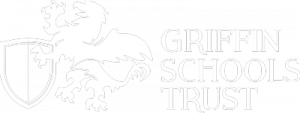>> RELIGIOUS EDUCATION
Intent
At Bramford we are theologists! All year groups work towards the Dudley Agreed Syllabus to ensure that the RE Curriculum is accessible to all and that it will maximise the outcomes for every child so that they know more, remember more and understand more.
It is our intent for the Religious Education element of our school curriculum to engage, inspire, challenge and encourage pupils, equipping them with the knowledge and skills to answer challenging questions, explore different religious beliefs, values and traditions and develop a more rigorous understanding of the numerous religious traditions, beliefs and practices that are followed in our multi-cultural society. We want them to recognise how religious education promotes discernment and enables pupils to combat prejudice, preparing them for adult life, employment and life-long learning. Through our Religious Education curriculum, we provide our children with the opportunity to express and uphold our school values of respect, tolerance, pride, independence, self-belief and honesty.
We provide our children with opportunities for them to learn about and from religions and worldviews in local, national and global contexts, to discover, explore and consider different answers to questions. We aim for all children to develop an aptitude for dialogue so that they can participate positively in our society, with its diverse religions and worldviews. Pupils will learn to express their insights and to agree or disagree respectfully.
Implementation
At Bramford Primary School Religious Education is taught on a weekly basis by the class teacher. RE work is recorded in books and is evidenced using a variety of outcomes as suggested by the agreed syllabus. Children have regular assemblies which teach them about shared worship, tolerance, understanding of others and respect. We use a range of teaching and learning styles, including activities such as discussion, role-play, religious stories, games, circle-time, problem-solving activities, use of artefacts and outdoor learning.
Our RE Curriculum aims to:
- Provide an objective and critical study of the phenomena of religious and non-religious worldviews.
- Help pupils to develop and reflect on their values and beliefs and their own personal worldview
- Allow children the opportunity to understand and respect the importance of religious beliefs in the world around them.
- Ensure that the RE curriculum is challenging, dynamic and relevant to pupils of all ages. – that is why an enquiry is promoted, encouraging higher -order thinking and allowing our children to explore in a way that is meaningful to them.
- Implement progression of skills document within each year group, which enables pupils to build on and develop their knowledge and skills each year. This also allows practitioners to see where children should start and finish in terms of their skills.
- Ensure that teachers use highly effective AFL at different points in each lesson to ensure misconceptions are highlighted and addressed.
- Facilitate the differentiation and assessment of RE for each individual child.
Across the school children will be taught to explore:
- Religious and non-worldviews
- Beliefs about God
- Significant Beliefs of varying religious groups
- How different groups practice worship
- Stories derived from different religions
- Festivals and celebrations from around the world
- Significant individuals that are People of Faith from current and historical viewpoints.
- Subject-specific vocabulary
There are no presumptions made as to the religious backgrounds and beliefs and values of the children at Bramford or the staff. We value the religious backgrounds of all of the members of our school community and we hope to encourage individuals to share their own experiences with others freely and without judgement. All religions and their communities are treated with respect and sensitivity, and we value any links that can be made between home, school and the faith community.
EYFS:
Religious education in the Foundation Stage should be planned to note in particular, what the EYFS Handbook says about the characteristics of effective learning which are described below.
- playing and exploring – this is concerned with children having hands-on experiences, showing curiosity, initiating activities, demonstrating a willingness to ‘have a go’ and a ‘can do’ attitude
- active learning – pupils demonstrate motivation, they are involved and are engaged in following a line of interest, they keep on trying, they are persistent when faced with a challenge or difficulty
- creating and thinking critically – pupils are inventive, they have their own ideas, they are able to identify meaning and intentions in the actions of others, they make links between ideas, they understand cause and effect
Impact
The units provided throughout the school within the RE curriculum include key building blocks linked to core concepts which are revisited throughout both key stages to promote the deepening of religious knowledge. The impact of this curriculum design will lead to outstanding progress over time across key stages relative to a child’s individual starting point and progression of skills. Upon leaving Bramford, children will have the ability to discuss their own views and listen to and respect the views of others. Children will be able to celebrate and appreciate the wider Bramford community, including their beliefs, traditions, culture, language and history.

